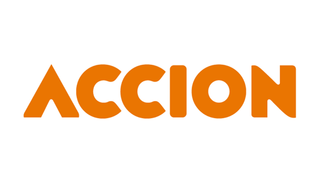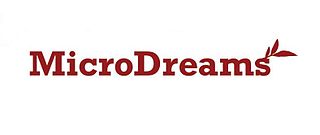
Microcredit is the extension of very small loans (microloans) to impoverished borrowers who typically lack collateral, steady employment, and a verifiable credit history. It is designed to support entrepreneurship and alleviate poverty. Many recipients are illiterate, and therefore unable to complete paperwork required to get conventional loans. As of 2009 an estimated 74 million people held microloans that totaled nearly US$40 billion. Grameen Bank reports that repayment success rates are between 95 and 98 percent. The first economist who had invented the idea of microloans was Jonathan Swift in the 1720s. Microcredit is part of microfinance, which provides a wider range of financial services, especially savings accounts, to the poor. Modern microcredit is generally considered to have originated with the Grameen Bank founded in Bangladesh in 1983 by their current Chief Adviser Muhammad Yunus. Many traditional banks subsequently introduced microcredit despite initial misgivings. The United Nations declared 2005 the International Year of Microcredit. As of 2012, microcredit is widely used in developing countries and is presented as having "enormous potential as a tool for poverty alleviation."

Microfinance consists of financial services targeting individuals and small businesses (SMEs) who lack access to conventional banking and related services.
Grameen Bank is a microfinance, specialized community development bank founded in Bangladesh. It provides small loans to the impoverished without requiring collateral.

Accion is an international nonprofit. Founded as a community development initiative serving the poor in Venezuela, it works with local partners in different countries to develop and scale digital financial solutions for underserved people globally.
A micro-enterprise is generally defined as a small business employing nine people or fewer, and having a balance sheet or turnover less than a certain amount. The terms microenterprise and microbusiness have the same meaning, though traditionally when referring to a small business financed by microcredit the term microenterprise is often used. Similarly, when referring to a small, usually legal business that is not financed by microcredit, the term microbusiness is often used. Internationally, most microenterprises are family businesses employing one or two persons. Most microenterprise owners are primarily interested in earning a living to support themselves and their families. They only grow the business when something in their lives changes and they need to generate a larger income.
Opportunity International is a 501(c)(3) nonprofit organization chartered in the United States. Through a network of 47 program and support partners, Opportunity International provides small business loans, savings, insurance and training to more than 14 million people in the developing world. It has clients in more than 20 countries and works with fundraising partners in the United States, Australia, Canada, Germany, Switzerland, Singapore, Hong Kong and the United Kingdom. Opportunity International has 501(c)(3) status as a tax-exempt charitable organization in the United States under the US Internal Revenue Code.

Small Industries Development Bank of India (SIDBI) is the apex regulatory body for overall licensing and regulation of micro, small and medium enterprise finance companies in India. It is under the jurisdiction of Ministry of Finance, Government of India headquartered at Lucknow and having its offices all over the country.

Kiva Microfunds is a 501(c)(3) non-profit organization headquartered in San Francisco, California. Kiva's mission is "to expand financial access to help underserved communities thrive."
IDFC Bharat Ltd is a microfinance company, operating in the Tamil Nadu area of South India. Since 1993, it has provided small loans to women without access to formal credit and who typically have daily incomes of less than INR 80 (US$2) per day.
Non-Banking Financial Company (NBFC) is a company registered under the Companies Act, 1956 of India, engaged in the business of loans and advances, acquisition of shares, stock, bonds, hire-purchase insurance business or chit-fund business, but does not include any institution whose principal business is that of agriculture, industrial activity, purchase or sale of any goods or providing any services and sale/purchase/construction of immovable property.
Microfranchising is a business model that applies elements and concepts of traditional franchising to small businesses in the developing world. It refers to the systemization and replication of micro-enterprises. Microfranchising is broadly defined as small businesses that can easily be replicated by following proven marketing and operational concepts.

Wokai was an organization that allowed people to contribute directly to microfinance institutions in China, which in turn lend the money to entrepreneurs in rural China. It was a 501(c)(3) non-profit organization based in Oakland, California, with core operations in Beijing, supported by individual donors, corporate sponsors, fundraising events and grants. As of May 2012, Wokai concluded operations due to funding roadblocks and the need for a new CEO.
Microcredit for water supply and sanitation is the application of microcredit to provide loans to small enterprises and households in order to increase access to an improved water source and sanitation in developing countries.

The MicroDreams Foundation is an American nonprofit organization that provides microfinance to micro-enterprise development organizations. It was founded by Gregory Casagrande in 2002. It had collaborated with South Pacific Business Development (SPBD) with microfinance institutions (MFIs) in Samoa, Bolivia, Ecuador, Peru, Tonga, Fiji, and the Solomon Islands.

South Pacific Business Development is an organization of microfinance institutions that works in Fiji, Samoa, and Tonga. The focus is to try and eliminate poverty on the Pacific islands.
Hattha Bank (HKL) is a Cambodian bank and microfinance institution (MFI) in Cambodia.
The impact of microcredit is the study of microcredit and its impact on poverty reduction which is a subject of much controversy. Proponents state that it reduces poverty through higher employment and higher incomes. This is expected to lead to improved nutrition and improved education of the borrowers' children. Some argue that microcredit empowers women. In the US and Canada, it is argued that microcredit helps recipients to graduate from welfare programs. Critics say that microcredit has not increased incomes, but has driven poor households into a debt trap, in some cases even leading to suicide. They add that the money from loans is often used for durable consumer goods or consumption instead of being used for productive investments, that it fails to empower women, and that it has not improved health or education.
Trustco Bank Namibia limited, formerly the FIDES Bank Namibia, is a commercial bank in Namibia owned by Trustco Group Holdings. Its main commercial activity is to provide microfinancing services.

Kashf Foundation is a non-profit organization, founded by Roshaneh Zafar in 1996. Kashf is regarded as the first microfinance institution (MFI) of Pakistan that uses village banking methodology in microcredit to alleviate poverty by providing affordable financial and non-financial services to low income households - particularly for women, to build their capacity and enhance their economic role. With headquarters in Lahore, Punjab, Kashf have regional offices in five major cities and over 200 branches across Pakistan.

VFS Capital Limited formerly known as Village Financial Services Ltd (VFS), is headquartered in Kolkata, was incorporated on 28 June 1994, as a private limited company before it got its present name.









